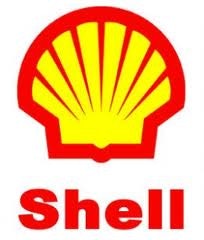The Supreme Court sided with Royal Dutch Shell plc (ADR) (NYSE:RDS.A) today in the landmark Kiobel v. Royal Dutch Petroleum case dealing with alleged corporate human rights abuses in the Niger River Delta. This decision constitutes a disgraceful victory for corporate impunity. Shell shareholders would be shortsighted to celebrate, and responsible investors have the power to do what the judiciary won’t.

Dismissed, but not innocent
To be clear, the Supreme Court did not find Royal Dutch Shell plc (ADR) (NYSE:RDS.A) innocent of the accusations against it. Those accusations are for crimes against humanity, including torture and extrajudicial executions. Rather, the court found that the case could not be resolved in U.S. courts under a federal law called the Alien Tort Statute (ATS), because Shell is a foreign company that allegedly committed acts against foreign victims on foreign soil. Never mind that Royal Dutch Shell plc (ADR) (NYSE:RDS.A) is listed on the New York Stock Exchange and earned almost 20% of its 2012 revenue in the United States.
In the past, activists have used the ATS as an accountability tool for the worst corporate human rights abuses. Indeed, the groundbreaking 1997 Doe v. Unocal case — which yielded compensation for victims of horrific abuse by security forces while working on a natural gas pipeline in military-ruled Burma — was brought under the ATS. Today’s result seriously curtails the future applicability of the ATS.
If your interest as an investor is purely in the bottom line, you might think this is a very good development. That kind of thinking could get you into trouble, though. I asked Bennett Freeman, senior vice president of sustainability research and policy at Calvert Investments, for his reaction to today’s judgment.
“What’s crystal clear here,” Freeman said, “is that this decision is going to make it very difficult, if not impossible, to use the [Alien Tort] Statute for this purpose in the future. This was a very significant ruling.” But Freeman emphasizes that the court’s decision should in no way be interpreted as undermining a consensus that the international community long ago established: Business has a responsibility to respect human rights. Indeed, this responsibility is embodied in the United Nations’ Guiding Principles on Business and Human Rights (link opens PDF).
A glimmer of good news
For as troubling as today’s decision is, it’s important to remember that Royal Dutch Shell plc (ADR) (NYSE:RDS.A) lost on some key points. The company had shamelessly argued that corporations are immune from the ATS, and the court didn’t buy that. It’s interesting how corporations want to enjoy the same rights as people when it comes to things like free speech, but none of the responsibilities of people when it comes to criminal liability.
